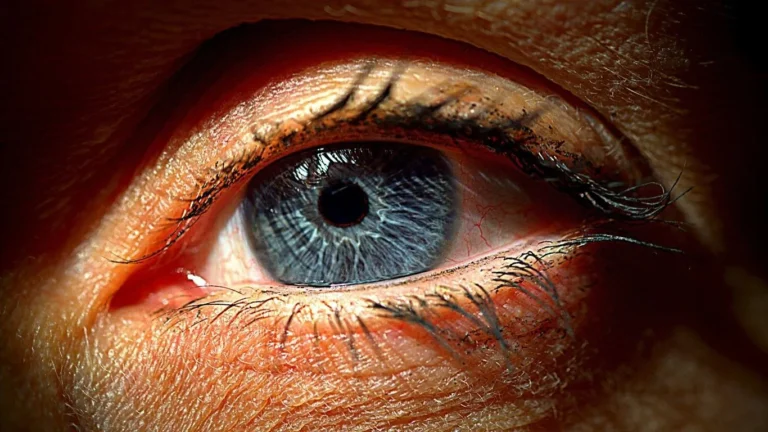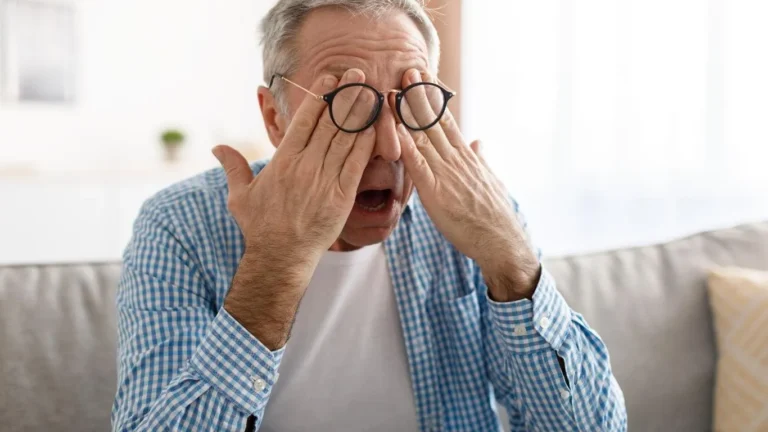Can RA Cause Depression? Understanding the Hidden Emotional Toll
If you’ve ever found yourself asking, can RA cause depression?, you’re not alone — and as a Rheumatology nurse practitioner, I’ve heard this question more times than I can count. Rheumatoid Arthritis isn’t just about joint pain and stiffness. It’s not just physical — it’s emotional, it’s mental, and it can quietly take a toll on your mood and overall well-being. I’ve had patients come in for a flare-up but end up in tears, not just from the pain but from feeling like their whole life is slipping through their fingers. Trust me, I’ve seen it, and I’ve sat beside them while they tried to make sense of it all.
How RA and Depression Are Connected

The Invisible Impact of a Visible Disease
RA can be relentless. Even when you’ve found a medication that works (mostly), there’s always this underlying tension. What if it stops working? What if the fatigue doesn’t let up? These “what ifs” stack up and wear people down. And unlike swelling or stiffness, depression isn’t something others can see. It’s silent, often misread, and too often brushed off as just a side effect of being sick. But that’s a dangerous oversimplification.
Inflammation and Mood — The Science Behind It
Here’s where things get interesting. Studies have shown that chronic inflammation — the same culprit behind RA joint damage — might actually play a role in triggering depressive symptoms. When your immune system is in overdrive, it releases cytokines (tiny proteins that mediate inflammation), which can also affect the brain. We’re talking about real biological changes, not just “feeling down.” This isn’t just a theory — research keeps backing it up.
- Increased pro-inflammatory cytokines have been found in patients with both RA and depression.
- Neurotransmitters like serotonin and dopamine — the ones that keep your mood balanced — are affected by chronic inflammation.
- Fatigue and pain, common in RA, also contribute to poor sleep and isolation, both of which fuel depressive symptoms.
It’s Not Just in Your Head — And It’s Okay to Talk About It

Real Talk From the Clinic
I’ll be honest, one of the most heartbreaking parts of my job is when someone downplays what they’re going through emotionally. “I’m just tired,” or “I’m probably just being dramatic.” No, you’re not. I remember a patient who had been battling RA for years. She came in one day and just said, “I don’t feel like myself anymore.” It wasn’t just about the pain. It was her spirit — it felt dimmed. That’s when we knew we had to look beyond joint care and focus on mental health too.
Why Depression Often Goes Undiagnosed in RA
The overlap of symptoms is tricky. Fatigue, low energy, trouble sleeping, changes in appetite — those are textbook RA symptoms. But they’re also classic signs of depression. It’s easy for both patients and providers to chalk them up to RA alone. And let’s be real — in a busy clinic visit, it’s hard to dig deep unless you’re really looking for it.
- Stigma: People still feel uncomfortable admitting they’re struggling emotionally.
- Time constraints: Office visits can be rushed, with a focus on physical symptoms.
- Lack of awareness: Many patients (and even some providers) don’t connect the dots between RA and mental health.
Why This Matters So Much

When We Treat Depression, We Help RA Too
Here’s what’s wild — treating depression doesn’t just help your mood, it can help improve your RA symptoms too. When you’re mentally stronger, you’re more likely to stick to your treatment plan, attend your appointments, move your body (even a little), and advocate for yourself. There’s no shame in needing support — mental health IS health.
As someone who has sat across from hundreds of RA patients, I can say this with confidence: you’re not alone, and there’s help. And yes, RA absolutely can cause depression, but it doesn’t have to define you. The first step? Just talk about it. That conversation can change everything.
Strategies to Support Mental Health When Living with RA
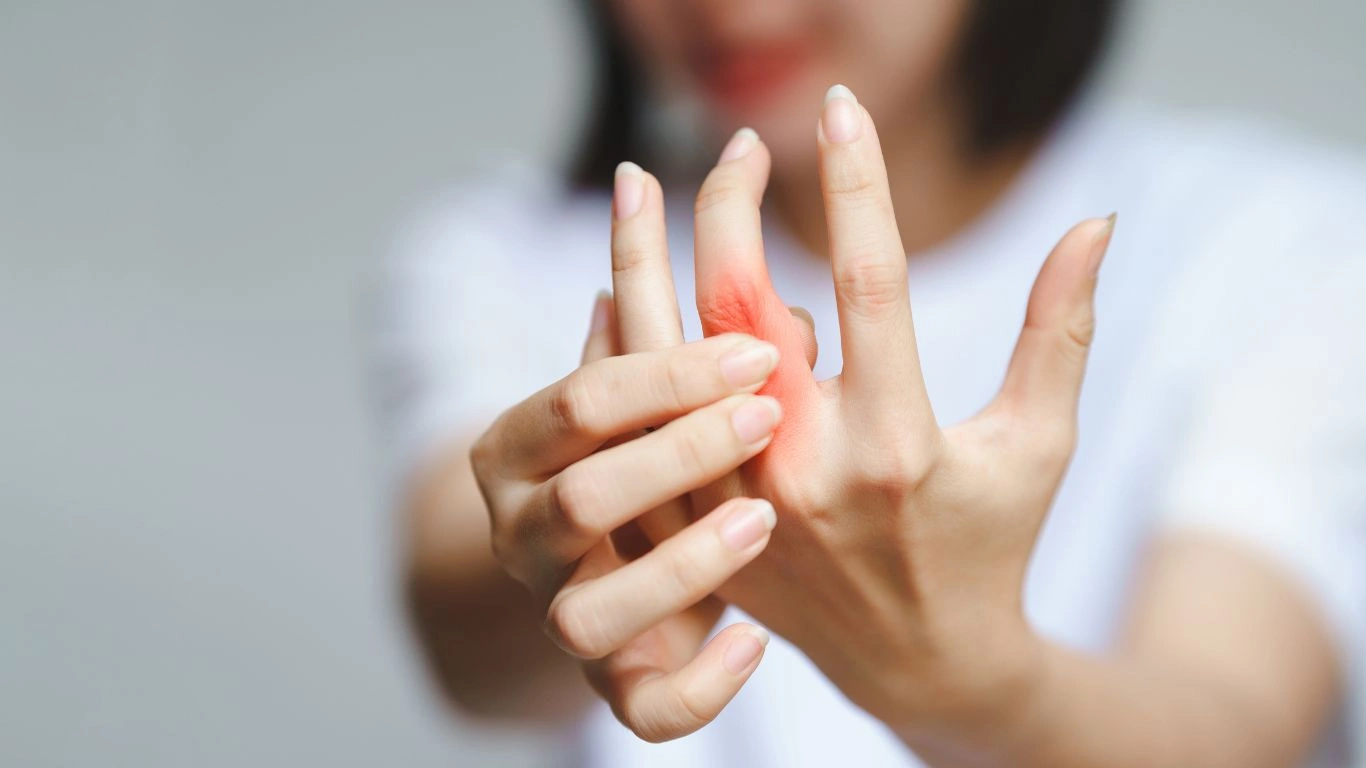
1. Addressing the Mind-Body Connection
One of the things I talk about with my patients all the time is this simple truth: you can’t heal your body without tending to your mind. I had a lovely patient in her early 40s — let’s call her Sarah — who was doing “everything right” on paper: taking her meds, following a gentle yoga routine, eating anti-inflammatory foods… but she was still exhausted, withdrawn, and just felt numb. Once we brought in a mental health provider and she started therapy, there was a visible shift. Not overnight, but she began showing up for herself again. That’s what integrating care looks like.
2. Therapy Isn’t Just “Talking About Feelings”
There’s still this outdated idea floating around that therapy is only for people in crisis. Let me tell you — therapy is for anyone managing something hard, and RA definitely qualifies. Cognitive Behavioral Therapy (CBT) has been shown to help patients with chronic illnesses reduce stress, manage pain perception, and challenge those spiraling thoughts that sneak in during flare-ups. I’ve even referred patients to therapists who specialize in chronic illness, which can be a game-changer.
- CBT: Helps reframe negative thought patterns.
- Mindfulness practices: Reduce anxiety and help manage flares.
- Acceptance and Commitment Therapy (ACT): Supports patients in embracing their new reality without giving up hope.
Why Support Systems Matter More Than We Realize
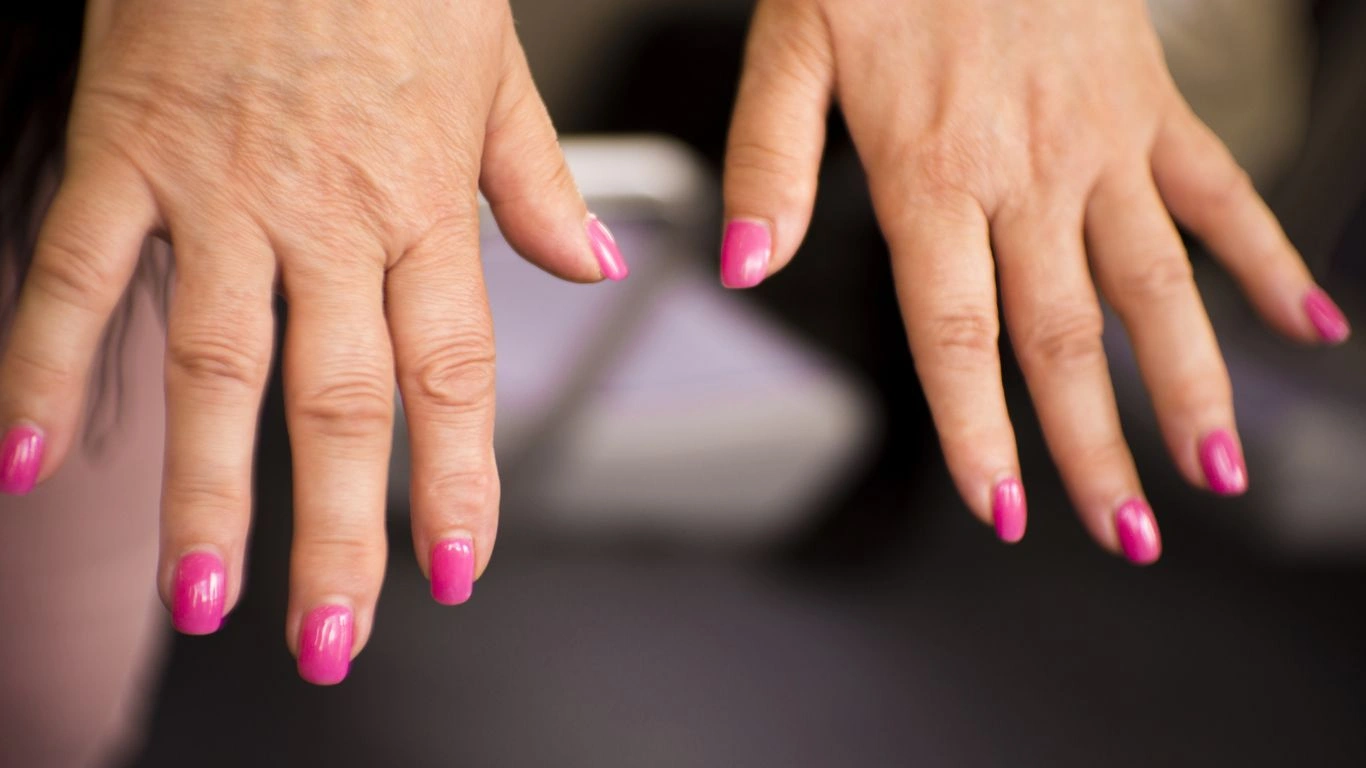
Let People In — Even When It’s Hard
Living with RA is exhausting. Now, toss in depression, and the thought of reaching out to others might feel like climbing a mountain. I’ve had patients say, “I don’t want to be a burden,” or “No one understands.” But here’s the thing: isolation feeds depression. Support groups (in-person or online), trusted friends, or even one family member who really gets it can make a massive difference.
There’s a wonderful online RA community that I often recommend. It’s full of real people sharing real struggles — not toxic positivity, just authentic support. And sometimes, even reading that someone else had the same rough morning you did can lift some of that emotional weight off your shoulders.
The Role of Healthcare Providers in Mental Wellness
As providers, we need to ask the right questions. I’ve learned to go beyond, “How’s your pain today?” Instead, I’ll ask, “What’s been the hardest part of this week for you?” or “Are you feeling like yourself lately?” Sometimes that opens the door to conversations patients didn’t know they were allowed to have in a rheumatology office.
- Normalize emotional check-ins during every visit.
- Use screening tools like the PHQ-9 for depression and GAD-7 for anxiety.
- Make referrals to mental health professionals part of the care plan.
Finding Hope in Small Wins

Tracking Progress Beyond Lab Results
One patient of mine started keeping a “good days” journal — not to ignore the bad ones, but to notice progress, even if it was just “I made it to my favorite chair with my tea today.” That small shift helped her reframe the tough times and stay anchored in something positive. Depression skews our ability to see the good. Having little reminders of resilience can slowly rebuild that sense of self again.
Medications Can Help, and That’s Okay Too
I want to gently bust another myth while we’re at it: taking antidepressants is not “giving up” or “masking the problem.” It’s treating a very real condition. In fact, some RA patients respond well to low-dose antidepressants not only for mood, but because certain types can help with chronic pain too. It’s not a magic fix — but it can be one powerful piece of a larger plan.
Let me just say this loud and clear: If you’ve ever wondered can RA cause depression, the answer is yes. But more importantly — you are not alone, and you are not broken. Depression isn’t a personal failure. It’s a signal, a call for support, and something that deserves attention and compassion. As someone who works with RA patients every day, I’ve seen healing happen in unexpected, beautiful ways — often when someone finally says, “I need help.” And that’s more than okay — that’s brave.
Building a Long-Term Mental Health Plan with RA

The Power of Routine and Predictability
One of the hardest things about living with RA — and I’ve heard this from so many of my patients — is how unpredictable it is. One day you’re walking the dog, the next you’re barely able to grip your coffee mug. That unpredictability doesn’t just affect your joints — it plays tricks on your mind too. So when it comes to managing depression along with RA, creating a routine can offer some much-needed stability.
Simple things like waking up at the same time each day, taking meds with a morning ritual, or setting aside 10 minutes to stretch or journal — they add structure. And that structure becomes your anchor. It sounds small, but it can genuinely help reduce the mental chaos that often tags along with chronic illness.
Personal Tip: What I’ve Noticed in My Own Practice
I had one patient — a retired teacher — who created what she called her “morning non-negotiables.” Even if she couldn’t move much that day, she made her bed, played her favorite podcast, and wrote one gratitude note (even if it was just “my cozy socks”). Over time, she told me it helped reframe her mornings from dread to manageable. That’s powerful.
Working With a Multi-Disciplinary Team
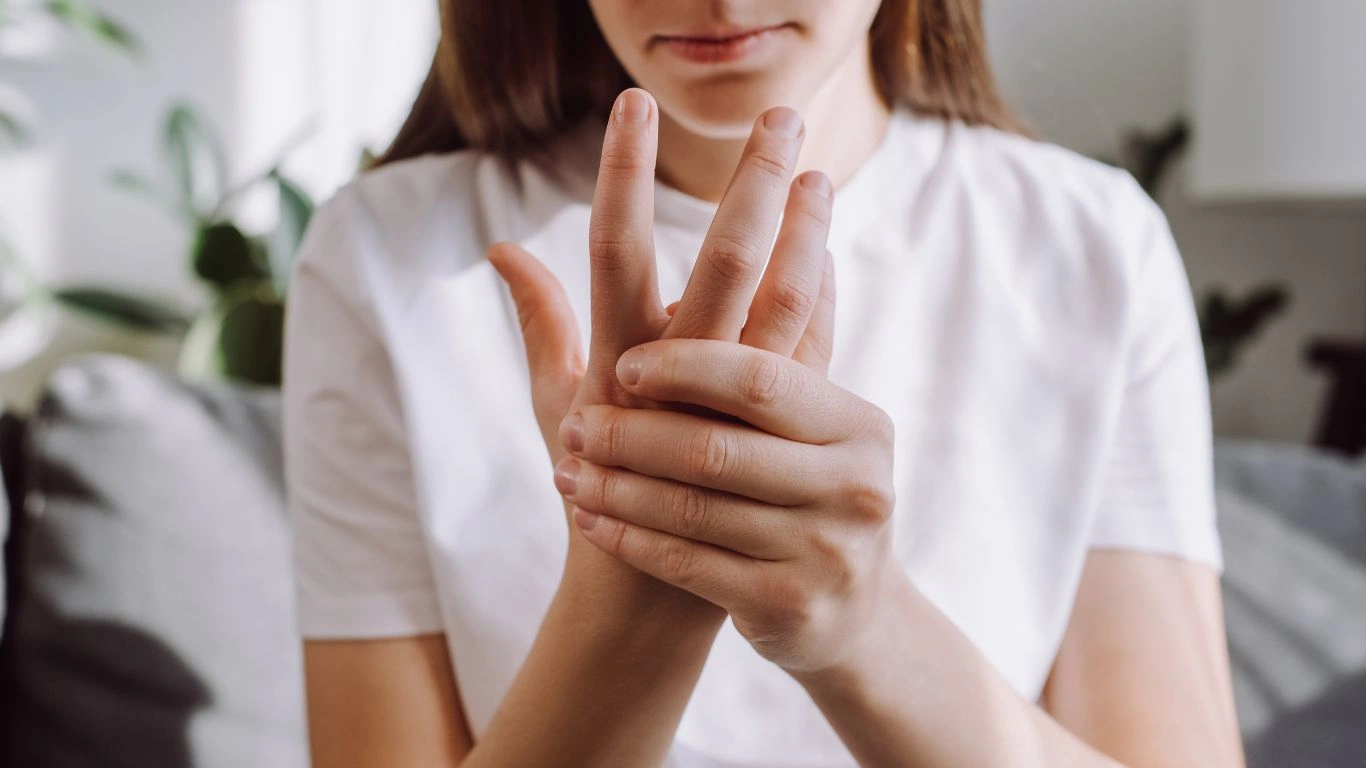
It Takes a Village — And That’s a Good Thing
If you’re managing both RA and depression, you deserve a care team that treats all of you — not just your joints. That means bringing in mental health providers, social workers, physical therapists, maybe even nutritionists. I love working in a setting where I can consult with a patient’s therapist or primary care doc. Collaboration makes care more cohesive — and patients feel seen and supported from every angle.
- Rheumatologist: To manage inflammation and disease progression.
- Primary care provider: To help monitor medications and overall health.
- Mental health professional: For support with emotional health and coping tools.
- Occupational therapist: To help maintain independence and adapt daily activities.
Advocating for Yourself as a Patient
This might be the most important point I make in this entire article: You are allowed to ask for more. More answers. More time. More referrals. I’ve had patients apologize for “bringing up something emotional” during appointments — please don’t. Your emotional health matters as much as your lab results. Speak up. You have the right to comprehensive care.
Signs It Might Be Time to Seek More Help
What to Watch For
Depression looks different for everyone, but here are a few signs that what you’re feeling might be more than just “a bad week.” And if any of these feel familiar, I strongly encourage you to reach out — to your doctor, to a therapist, to someone you trust:
- Feeling persistently hopeless or helpless
- Loss of interest in things you used to enjoy
- Increased fatigue or sleep issues beyond your RA baseline
- Changes in appetite or weight (not explained by RA meds)
- Thoughts of self-harm or feeling like a burden
Please hear me: These are not things you have to tough out alone. There’s support, there’s treatment, and there’s no shame in needing either.
Hope Is Real, Even If It’s Hard to See Right Now
Rebuilding Self-Worth Through Small Victories
RA can make you feel like you’ve lost control of your body — and depression can convince you you’re losing your mind too. But neither gets to define you. Healing isn’t always linear. Some days you move forward. Some days, you just stay afloat. And both are okay. I’ve watched patients go from barely coping to thriving — not because their RA disappeared, but because they were given the tools and support to handle it with more confidence and care.
So, if you’ve been asking yourself, can RA cause depression? — Yes, it absolutely can. But depression isn’t the end of your story. With the right care, the right support, and a little grace for yourself, it can be just one chapter in a much larger, richer journey.
References
- https://www.rheumatology.org/
- https://www.arthritis.org/
- https://www.nimh.nih.gov/
- https://www.mayoclinic.org/
- https://www.cdc.gov/
Disclaimer
This article is for informational purposes only and is not a substitute for professional medical advice, diagnosis, or treatment. As a licensed Rheumatology Nurse Practitioner, I’ve drawn on both clinical experience and current research to offer guidance — but every patient’s situation is unique. Please consult your healthcare provider with any concerns about your mental or physical health.

Tarra Nugroho is a dedicated Nurse Practitioner with a strong foundation in family and preventive care. She brings both compassion and clinical expertise to her practice, focusing on patient-centered care and health education. As a contributor to Healthusias.com, Tarra translates medical knowledge into clear, empowering articles on topics like women’s health, chronic disease management, and lifestyle medicine. Her mission is simple: help people feel seen, heard, and informed—both in the clinic and through the content she creates. When she’s not caring for patients, Tarra enjoys weekend hikes, plant-based cooking, and curling up with a good health podcast.




